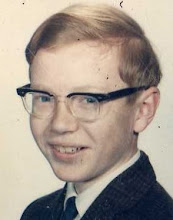 Here today...
Here today...We saw The Giant Buddhas at the Museum of Fine Arts on Friday, a documentary by the Swiss filmmaker Christian Frei about the Taliban blowing up three 1500+ yr old statues in the Bamiyan Valley in Afghanistan in 2001. The local Taliban were following a directive from the half-blind Mullah Mohammed Omar to destroy "un-Islamic graven images", which covers a lot of ground. (What's it to Omar anyway, I wondered, he can barely see in the first place...)
I enjoyed the theatre and the company and the dinner afterwards, but didn't think much of the movie itself which was a collection of related stories stitched together in a non-linear (so "artistic" I guess) way. We heard from an al-Jazeera journalist who at great peril managed to film the explosions, a local Hazari family living in a nearby cave, an archaeologist looking for additional giant Buddhas nearby, and a glamorous Canadian-Afghan actress/novelist whose father had visited these statues years ago. We heard the director's point of view through a narrator. They visited China too to seek out a re-creation in a Buddhist theme park that had been stopped by the government.
 Frei's camera lingered on Nelofer Pazira's pale green eyes for much longer than necessary. It seemed like she was Frei's true interest.
Frei's camera lingered on Nelofer Pazira's pale green eyes for much longer than necessary. It seemed like she was Frei's true interest.Angry fundamentalists who as good anti-modernists didn't even have the technical skills to blow things up, needed to rely on Saudi engineers to complete the task. Technology itself as part of modernism is an abomination yet an exception is made for it only insofar as it can help you murder your enemies. Thus, yet another religion that conveniently disregards theological purity in favor of expedience when something actually needs to get done. More routine hypocrisy.
 ...gone tomorrow
...gone tomorrowAnd what effect could this gesture have on the beliefs of Buddhism? The Taliban are angry ignorant boys, acting out on the world stage. We'll show you! No one pointed out the metaphysical irony of the act. All they did was prove the Buddha's point--impermanence is the only reliable condition. Like their one-eyed Mullah the Taliban are blind, to their own folly. They do not think, they only follow, like militant lemmings.
Do my bidding, my lemmings! Not by my authority but rather, because It Is Written! Do not concern yourselves with the struggle of education--I will save you the trouble and interpret the holy books for you, freeing you to devote yourselves to prayer. The fact that What Is Written happens to be what I want you to do anyway is a fortuitous coincidence! Worried about death? No problem--I shall provide the optimistic certainty you crave. You will live forever in the afterlife, I guarantee it! And with full-breasted virgins feeding you peeled grapes, and pistachios and those expensive Medjool dates. And a flying carpet--why not! In return for which I ask only that you blow up, or get somebody to blow up for you if the math is too difficult, anything or anyone who displeases me.
Who, my lemmings, can offer you a better deal than that?


